[Pakistan June 1, 2023] Inspection of housing construction projects for flood-affected residents
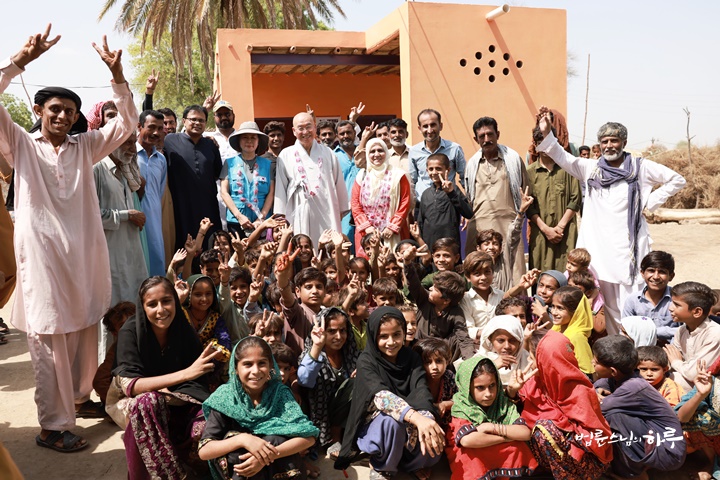
Hello. Last night at 9:05 PM, Sunim departed Bangkok on a flight that arrived at Karachi Airport in Pakistan at 6:50 AM this morning.
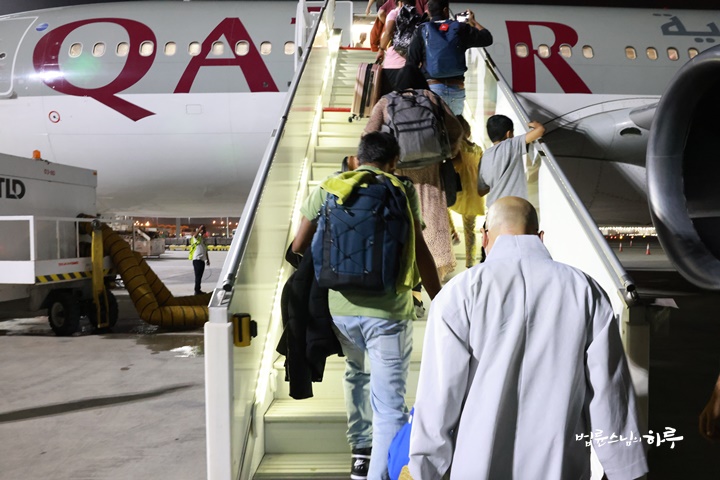
Pakistan experienced record-breaking heavy rains in June 2022, resulting in over 1,000 fatalities. Due to the massive flooding, one-third of the country was submerged in water, more than 33 million people were displaced as flood victims. Over a million houses were destroyed, and more than 240 bridges were washed away. The government struggled to cope with this catastrophic event, and foreign aid support was also limited.
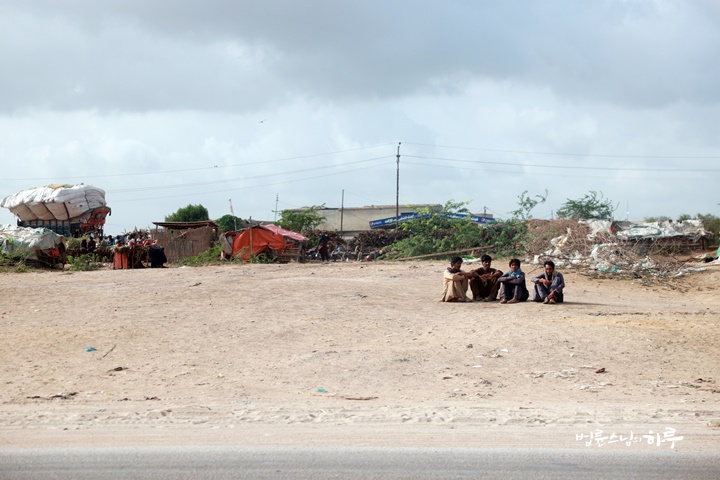
During Sunim’s visit to India in late August last year, he received a report on the situation of flood-affected residents in Pakistan and immediately began conducting on-site investigations through JTS (Joint Together Society).
On October 7th, JTS representative Gina Park entered Pakistan and confirmed the situation on the ground. At that time, the roads were still submerged in water, and those who had lost their homes due to the floods were living in tents set up on any dry land they could find.
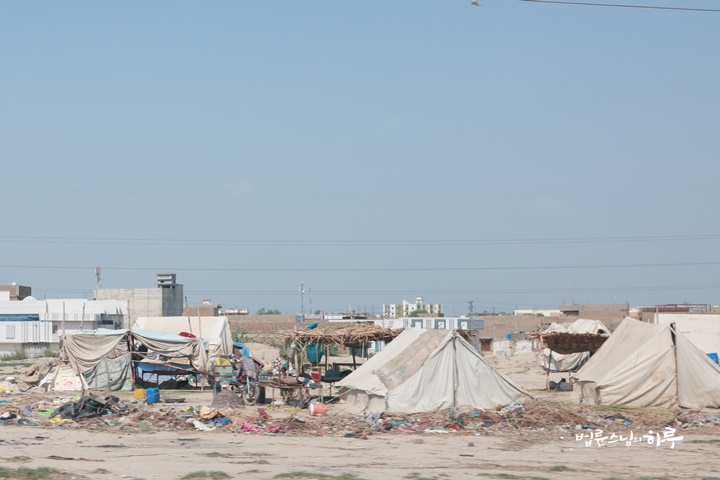
JTS promptly decided to provide food assistance to the flood-affected residents in Pakistan. They held meetings with five local organizations in Pakistan and selected ‘FRDP (Fast Rural Development Program)’ as a collaborative partner for JTS. JTS took responsibility for the provision of supplies, while FRDP was entrusted with the distribution process.
Based on this initial connection, JTS took charge of purchasing and distributing relief supplies, while FRDP collaborated with local authorities to identify eligible households and took responsibility for transportation and distribution. Since October, they have successfully completed six rounds of food assistance and are currently involved in projects such as providing 1,000 hand pumps and constructing 100 houses. Sunim came to Pakistan to support 1,000 households with food assistance, working together with the FRDP activists who have been engaged in support projects in collaboration with JTS.
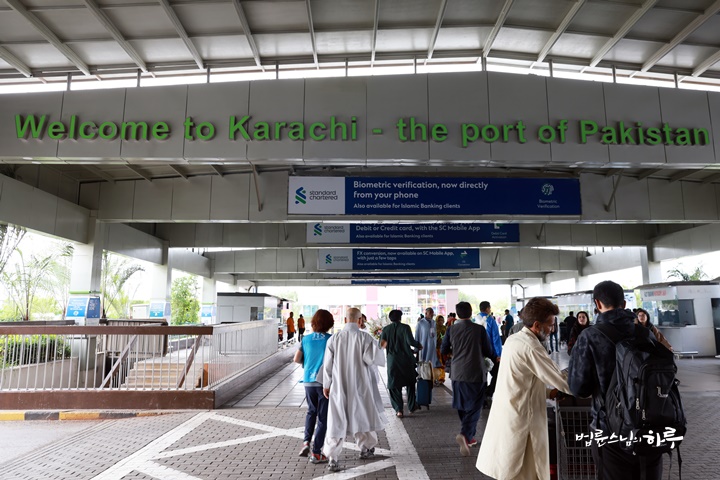
Upon arrival at the airport, Sunim was greeted by JTS representative Gina Park and Ali Shahid, the director of FRDP, a relief collaboration organization in Pakistan.
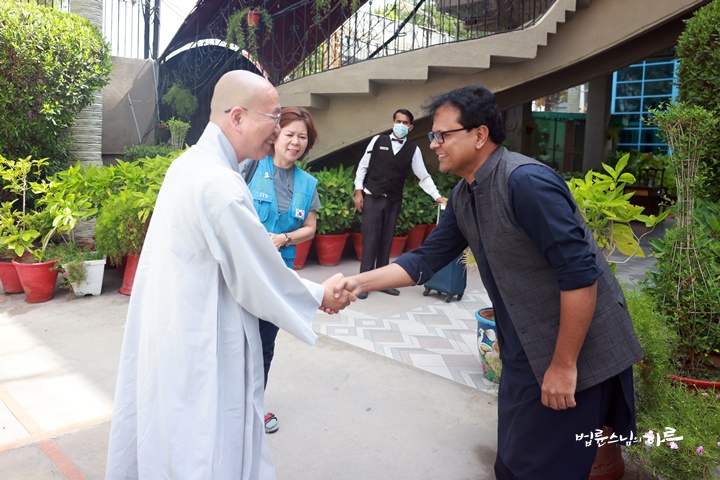
After a short greeting, both headed toward the Hyderabad accommodation that took 3 hours.
After settling in and enjoying a light meal, they proceeded to inspect the progress of the housing construction project.
The flood-affected areas in Pakistan are gradually recovering to some extent with the help of various countries and efforts from the Pakistani government. However, it is still in great need of additional support. Among those affected, the most vulnerable are the impoverished individuals who lost their homes in this major flood. Due to incessant rain for 48 hours, houses made of mud mostly collapsed.
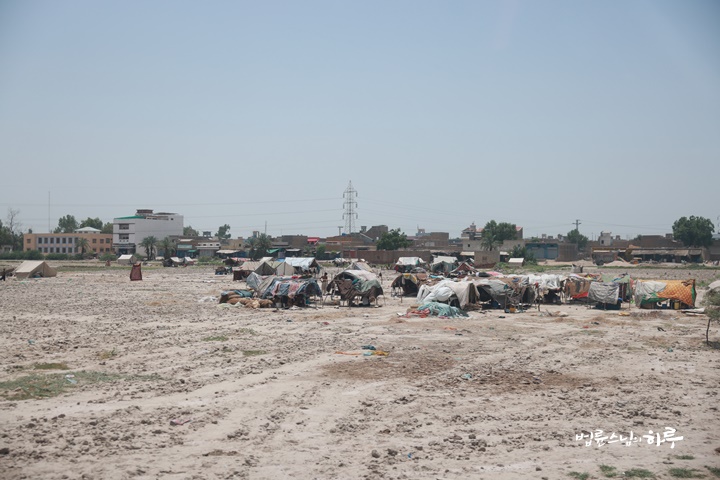
After the major flood, Pakistan experienced severe inflation over the course of one year. Particularly, the lower-income individuals found themselves spending most of their income on food expenses, leaving little to cover education and healthcare costs, which became almost unaffordable. In such circumstances, the prospect of rebuilding homes is nothing more than a dream for impoverished individuals.
Due to the need to sustain their livelihoods, impoverished individuals have resorted to taking out small-scale loans. However, as they lack the ability to repay these loans, a vicious cycle of accumulating debt continues to occur. It is ironic that the poorest individuals, who are the biggest victims of the major flood, find themselves trapped in a situation where they are burdened with even more debt.
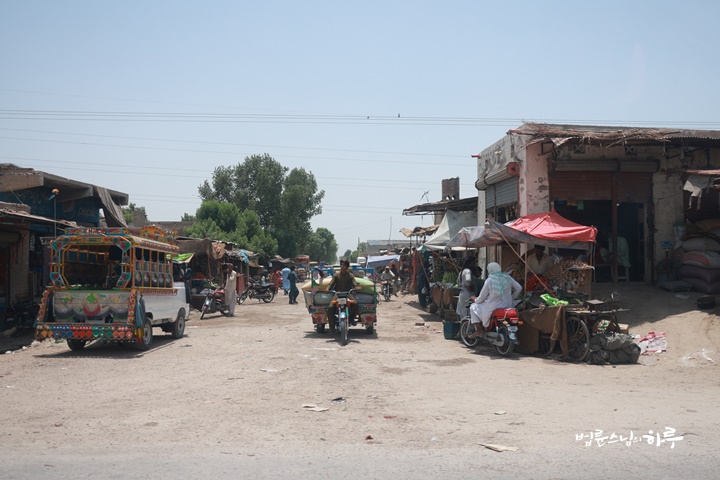
JTS initiated a housing construction project targeting the most destitute 100 households as the first phase. Today, Sunim visited and inspected three model houses that were built as a preliminary step for constructing the 100 houses. The model houses were recently completed and currently prioritize impoverished households, particularly widows who have the responsibility of maintaining their livelihoods. Three such destitute families have been selected to live in the model houses.
Sunim traveled two hours to arrive at the village of Kozi Ahme, where the first model house was located. People from the village had gathered at the entrance, eagerly awaiting Sunim’s arrival.
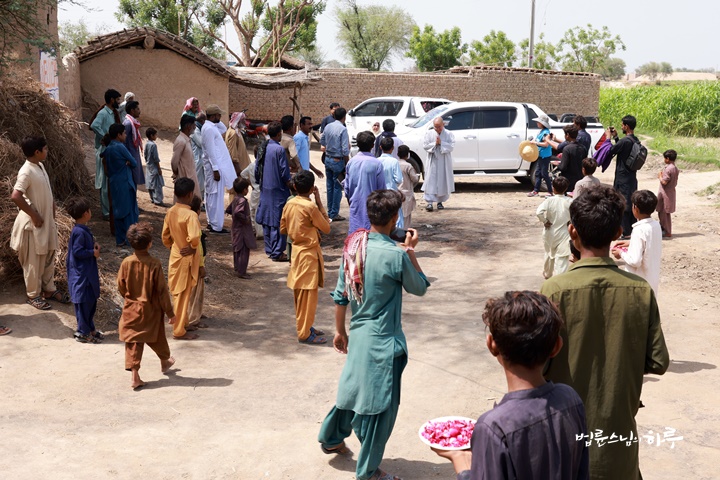
As Sunim entered the village, the children welcomed him by showering flowers, creating a warm and welcoming atmosphere.
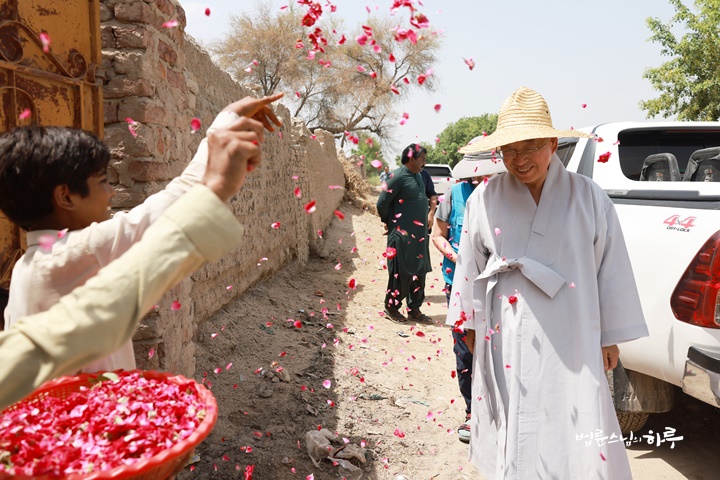
One child presented a small dove to Sunim, symbolizing peace and goodwill.
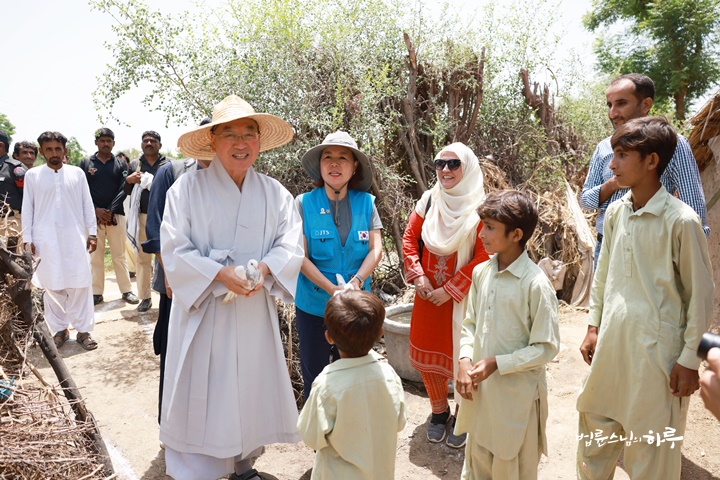
“Thank you for coming, Sunim.”
“So, you want me to release this dove?”
“Yes.” (smiling)
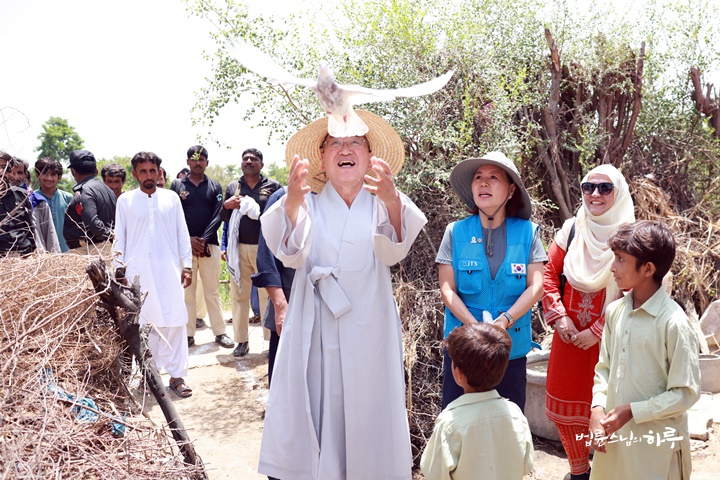
As the dove was released, the children clapped their hands in joy. Sunim then performed a brief blessing ceremony before entering the house to inspect its interior.
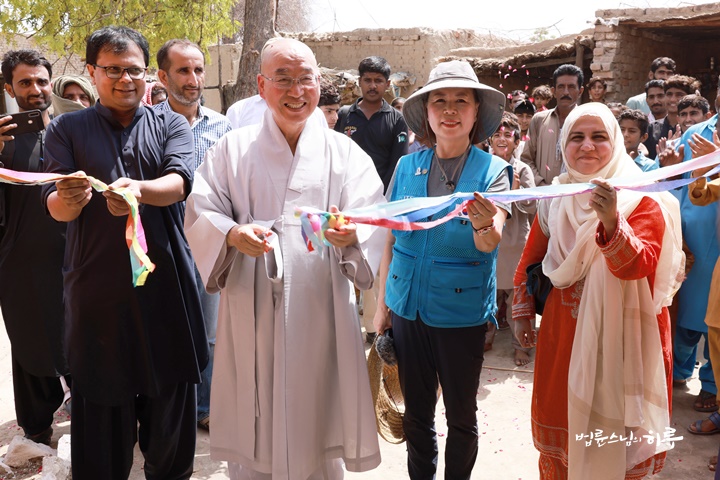
Inside the small space, which appeared to be around 5 square meters, there were two beds placed.
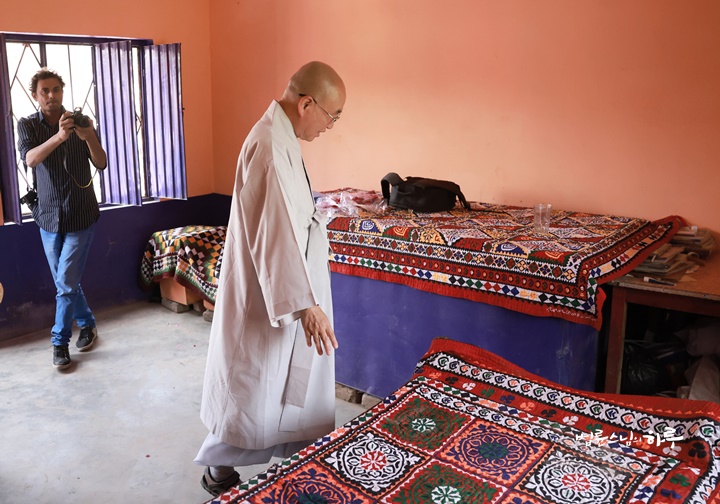
“Approximately how many people is this house intended to accommodate?” Sunim asked.
“Currently, there are four people living here,” the construction engineer replied. Sunim then sought out the family residing in the house.
“How is it? Is it possible for four people to live in a house of this size?” Sunim inquired.
“Yes, we are satisfied.”
“Have you encountered any discomfort while living here?”
“No, we haven’t encountered any.”
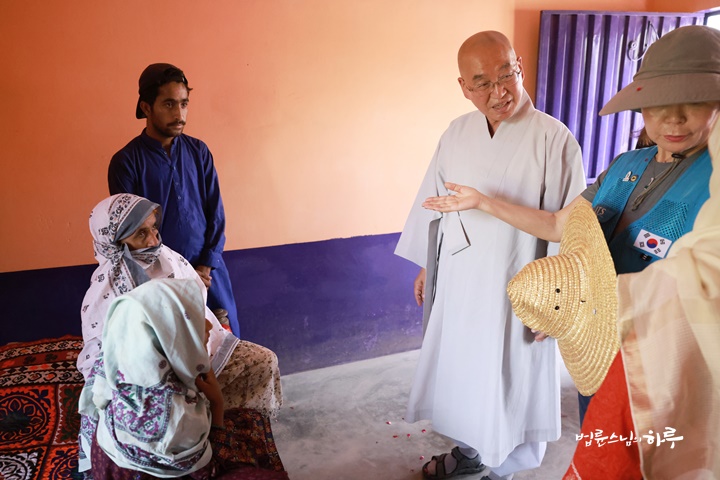
“There’s only one room, so where are the bathroom and kitchen located?”
“They are located outside.”
Sunim looked around the kitchen and bathroom, “The kitchen and bathroom were originally here, not newly built, right?”
“Yes, we had to consider various things to fit within the budget. For the first house, since four adults will be living here, we needed a lot of interior space. So we decided to utilize the existing space for the bathroom and kitchen and tried to make the interior space as spacious as possible.”
Sunim looked around the daily lives of the surrounding village.
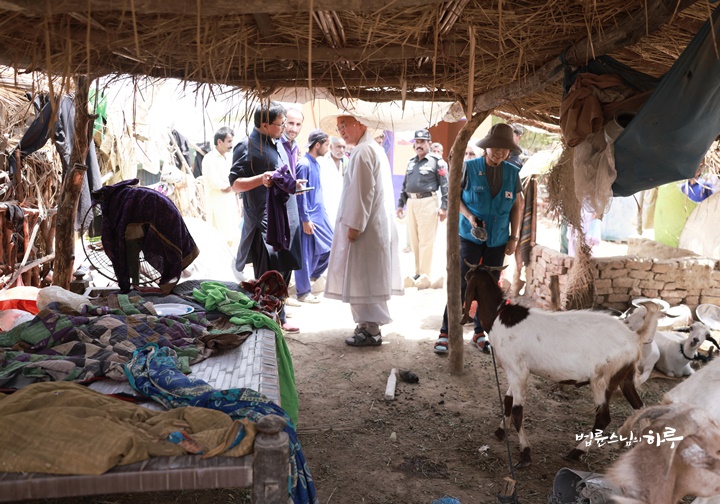
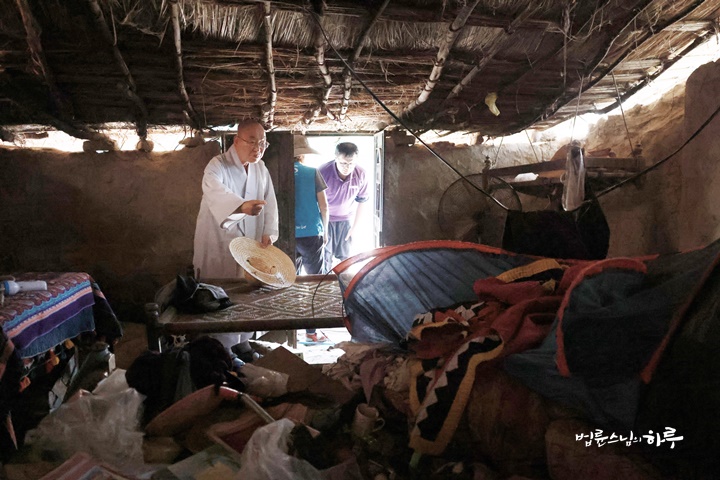
“It seems even more impoverished than the village of Dungeshwari in India.”
Sunim moved to the second model house, designed to accommodate five people.
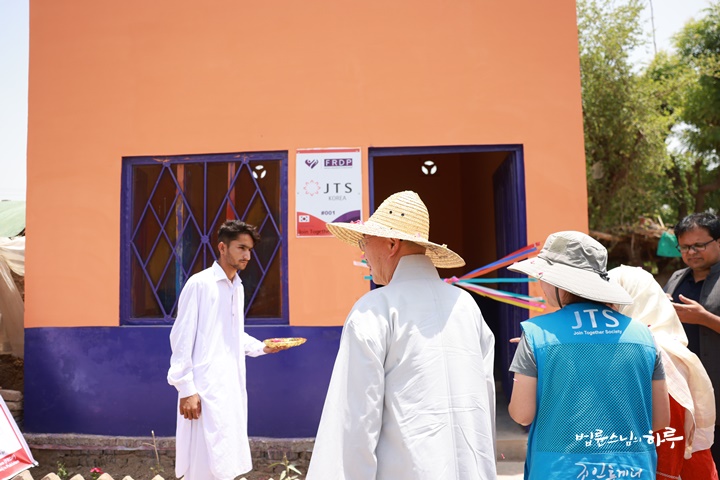
A widow with three daughters and one son was selected to live in this house.
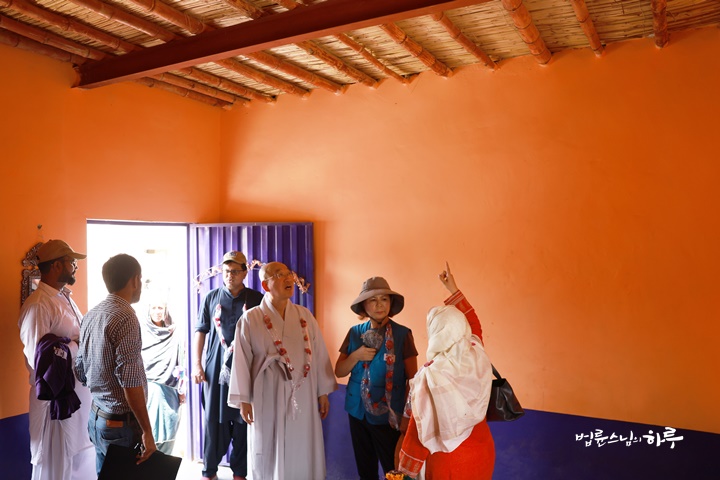
After exploring the house, Sunim met with the family before leaving.
“Are you attending school?”
“Yes”
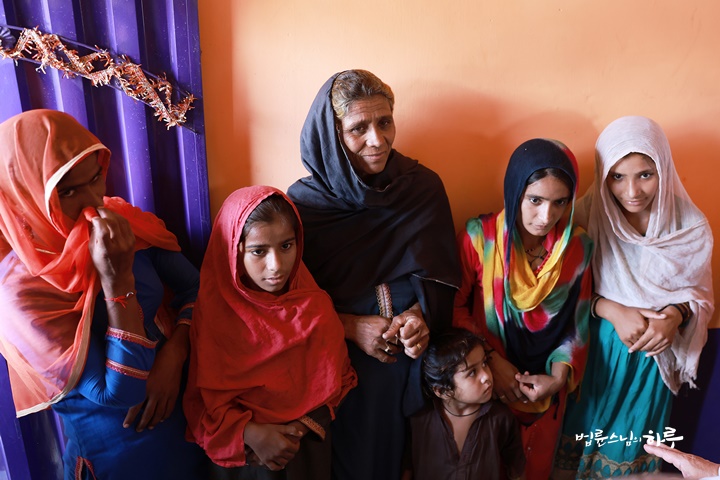
“What grade are you in?”
“5th”
“Do you go to Government school or private school?
“I go to Government school”
“How are they managing the school fees? Are they paying tuition fees or is it free?”
“It’s free but we have to purchase school supplies individually.”
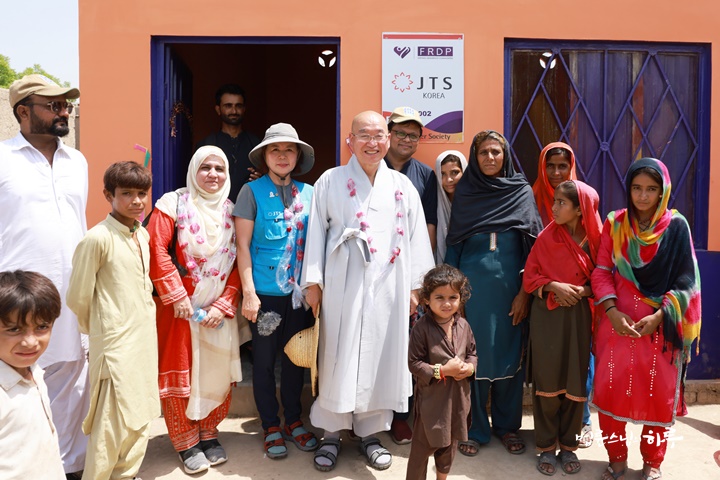
“Even in the midst of difficulties, it’s crucial not to miss out on attending school.”
Sunim made it a point to inquire about the children’s school attendance and their means of attending school whenever he encountered young children. They then proceeded towards the third model house.
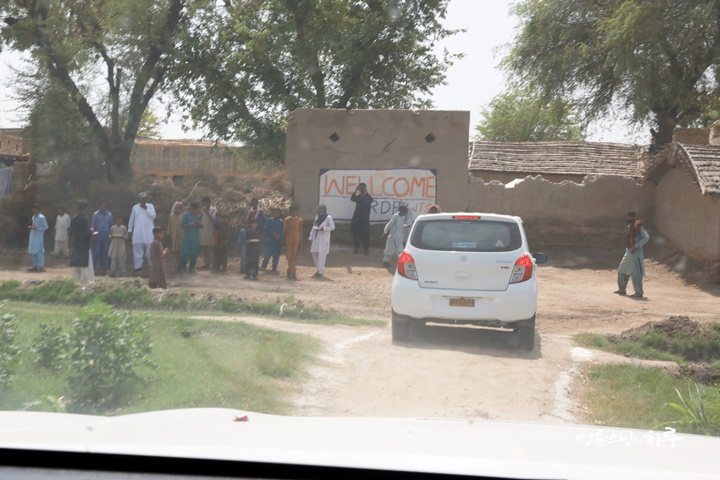
The third model house had a small bathroom inside the house and a balcony outside, making it the smallest in terms of room size among the houses seen so far.
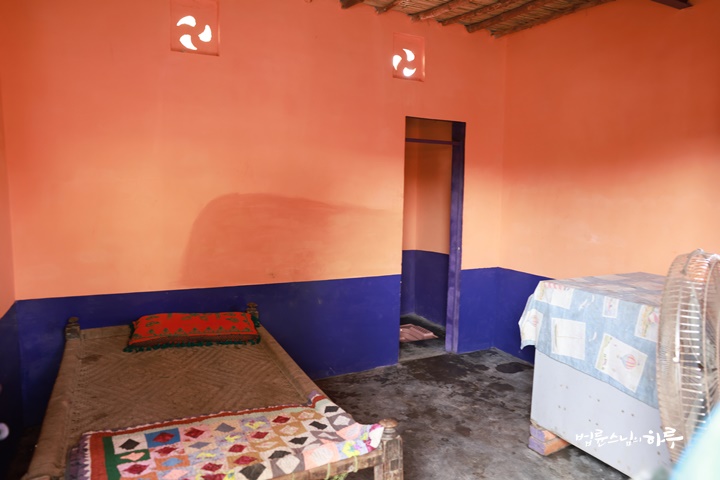
In this house, a widow with mental disabilities was taking care of her mother, who had dementia, along with her five daughters.
The family was seated on a platform outside the house.
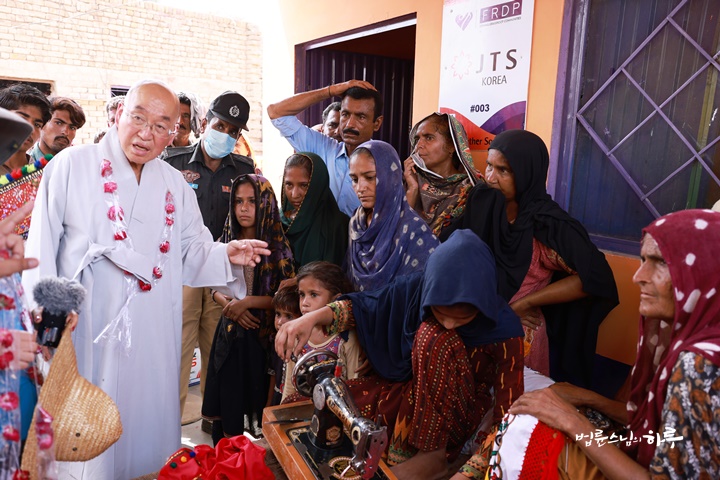
“Is it possible for everyone to live together in such a small room?”
“Yes, it’s fine. The weather is often too hot, making it difficult to stay inside the house. Most of the time, we spend it sitting on this wooden bench outside. It’s alright,”
“Do you prefer having the bathroom inside the house even though it makes the rooms smaller?
“yes”
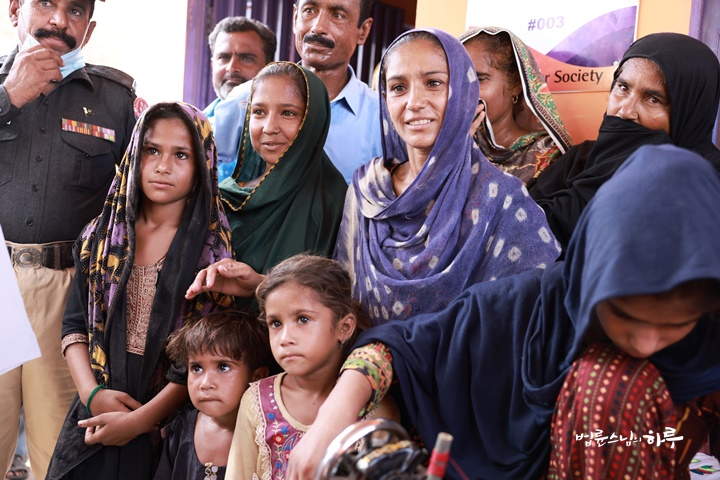
Sunim explored all three model houses, which were constructed with cement rather than mud houses. Although the interior of the houses appeared slightly cramped, the local people mentioned that they mostly spent time in the yard or outside, so the limited space was not a significant inconvenience.
Tomorrow, Sunim decided to have a meeting with the technicians responsible for the construction to listen to their explanations and discuss which model house to select for building around 100 households. FRDP (Foundation for Rural Development and Peace) also planned to collaborate with government agencies to select eligible households for support based on the progress of the project.
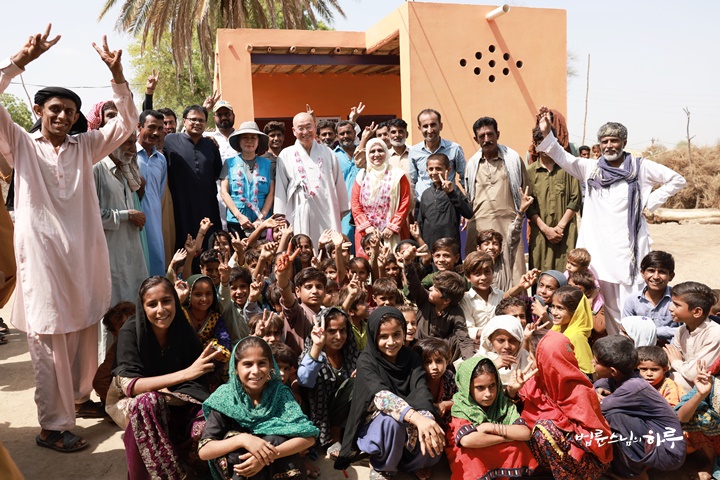
Sunim expressed gratitude to the villagers who welcomed him before leaving the villages.
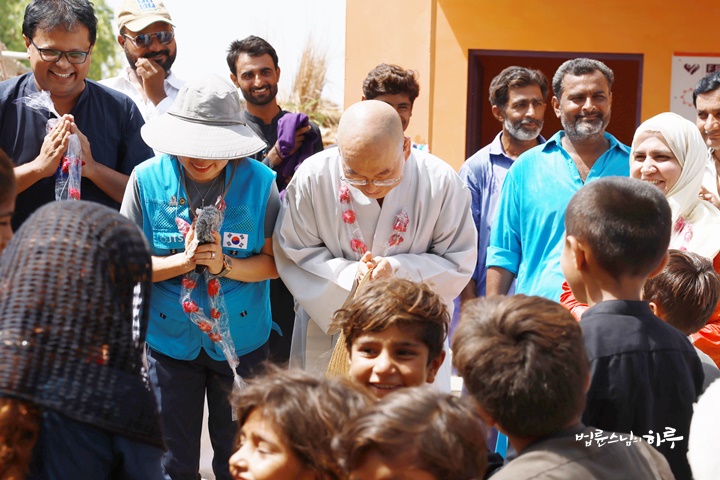
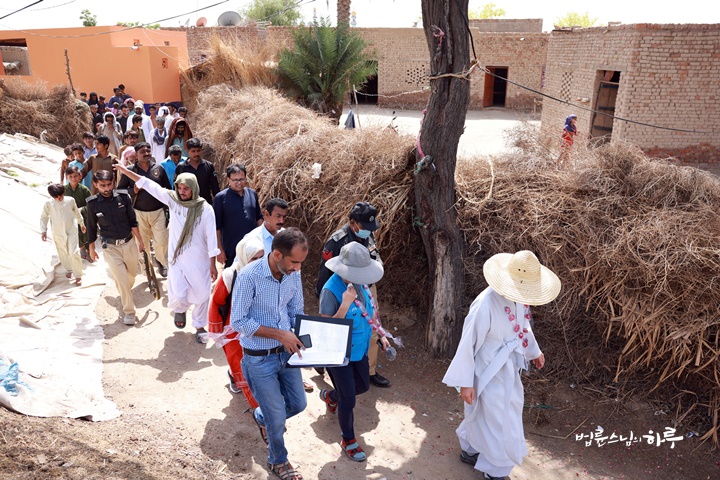
On the way back, he visited the FRDP office and invited all the volunteers to dinner to show appreciation for their hard work.
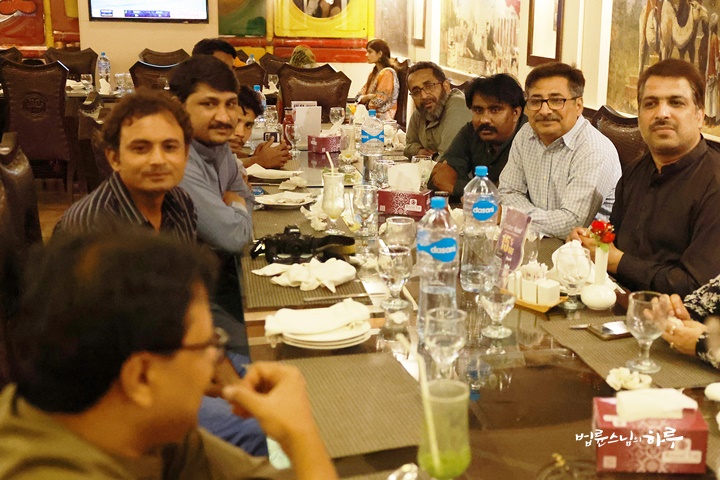
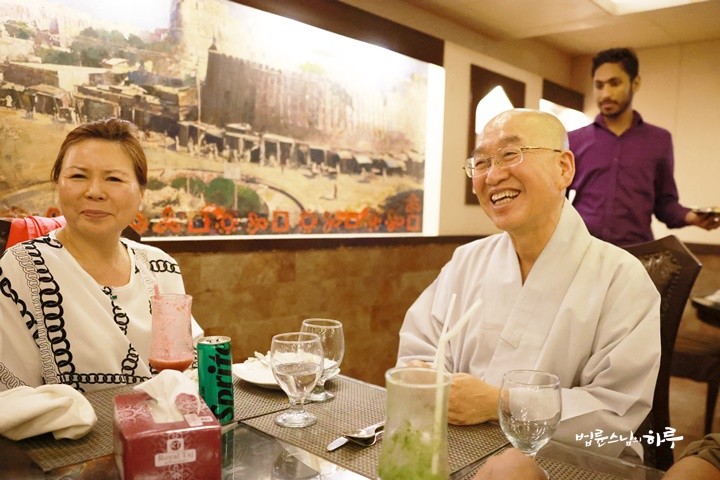
The first day in Pakistan has passed quickly. Tomorrow, we will be distributing food with FRDP and inspecting the progress of the hand pump support project before heading to Bangkok.


